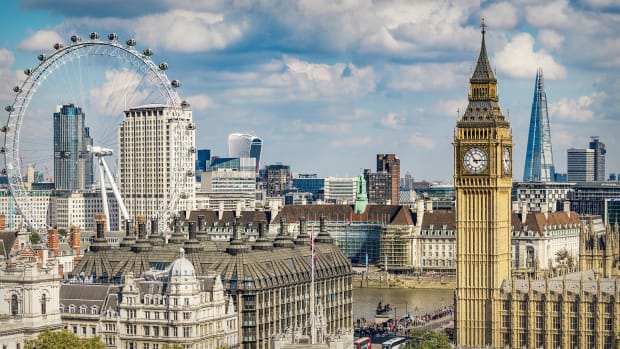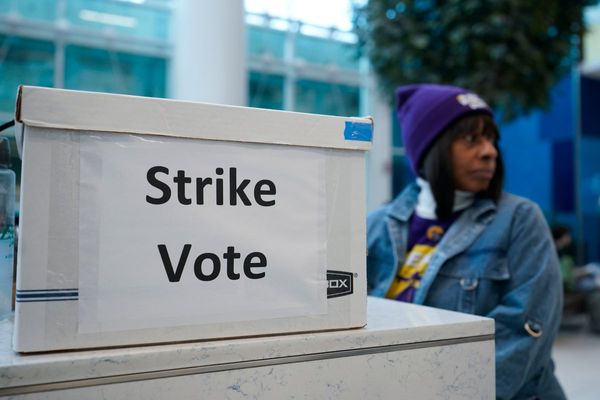
Since the return and explosion of post-pandemic travel, a number of countries have started introducing "tourist taxes" and other fees for those who want to enter.
Thailand recently started charging international arrivals a fee of between 50 and 300 baht (between $1.45 and $8.70 USD) that go toward keeping popular attractions clean while members of the European Union are preparing to launch a 7 euro (roughly $7.57 USD) travel authorization fee tied to one'spassport.
DON'T MISS: Get Ready To Pay A 'Tourist Tax' When Traveling This Summer
Having cut ties with the European Union in 2020, the latest country to introduce a similar fee is the United Kingdom. The new Electronic Travel Authorisation (ETA) will be rolled out fully by the end of 2024 and apply to travelers from countries with visa-free agreements with the United Kingdom.

Getty Images
Get Ready To Pay To Enter The United Kingdom
The ETA, whose implementation dates were confirmed by the UK government this week, will cost £10 (about $12.50) and be valid for two years. To get it, travelers will need to enter one's passport details through the government app or website.
The ETA is electronically connected to one's passport (the border agent sees that it is paid when you cross customs) and applies to those entering the country for tourism and short periods of time — those applying for a long-term visa or those who need a visa for short-term travel will pay the regular visa fee. British and Irish passport holders (as well as those entering the UK from Ireland) are exempt from the fee entirely.
"You can use it to make multiple visits to the UK," the British government writes on its website. "You still need to either use an ePassport gate if you're eligible or see a Border Force officer to enter the UK."
Citizens of Qatar will need to apply for the ETA from November 15, 2023 while travelers from Gulf countries like United Arab Emirates, Kuwait and Saudi Arabia will need to get one starting from February 22, 2024. The specific date for when the ETA will be necessary for travelers from the United States, Canada and the European Union has not yet been set but the government intends to complete the implementation by the end of 2024.
Here's Where That Travel Authorization And Tourist Fee Money Really Goes
While the fee may initially shock travelers used to pulling out their passport and hopping on a flight to Europe, travel authorization is actually a common and growing practice — the United States has had the Electronic System for Travel Authorization (ESTA) in place since 2009. ESTA costs $21 for a two-year validity period and is necessary for travelers from the United Kingdom, Europe and other countries with a visa-free agreement.
Japan is another country that has had a similar fee in place for years. While most countries exclude their citizens and people from nearby countries from the fees, every single person arriving to Japan by air needs to pay an extra 1,000 yen (roughly $7.15 USD) regardless of residency.
Often, the fee is a way for the government to collect extra taxes that then go toward local development or tourist and sustainability initiatives. Currently dealing with rising sea levels and erosion, the island nation of Maldives charges travelers an arrival fee of $6 but lowers it to $3 for those who choose to stay in an eco-friendly guesthouse.
The oil-rich Middle Eastern nation of Brunei calls it a "sustainable development fee" and charges international arrivals a steep $200 for each day in the country.







